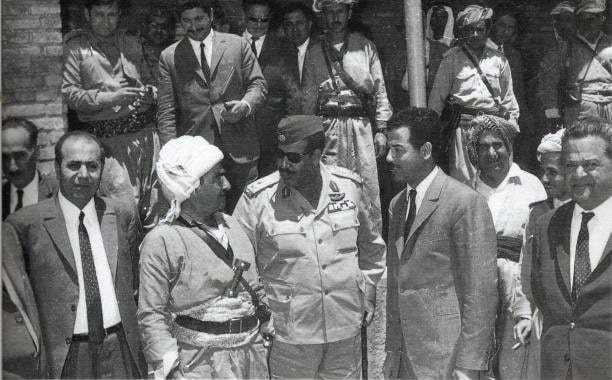
The physical elimination of political opponents during these years – Kurdish nationalists, Communists, and Shiite Islamists affiliated with the Party of the Islamic Appeal, better known as the Dawa Party – also contributed to the consolidation of the Baath regime, which used a combination of rapprochement and repression. The Progressive National Front, which existed from 1973 to 1978 and was a political platform under the leadership of the Baath Party, played an important role in this policy.
With the aid of the Front, the party sought to stabilize the internal situation, partly with an eye to the nationalization of the oil industry. The Iraqi Communist Party (ICP) and several Arab nationalist and Kurdish splinter organizations became members, but the Kurdish Democratic Party (KDP) never completed its membership negotiations.
Barzani’s KDP was not opposed, in principle, to working with the Baath regime, after an agreement on regional autonomy was concluded on 11 March 1970. The repression of the Communists was resumed after 1968, but there were simultaneous discussions between the Baath regime and leaders of the ICP. The rapprochement between Iraq and the Soviet Union in the years preceding the nationalization of the oil industry played an important role. Only after difficult negotiations did the ICP finally agree to the formation of the Front in 1973. This politics of accommodation, dictated by Moscow, was controversial in Communist circles, and these tensions resulted in a further weakening of the party.

